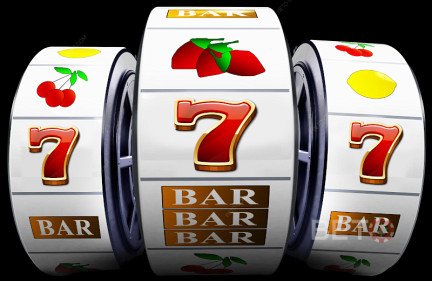The underlying game design and functionality give creators first thought when determining the bonus buy price. Features and gameplay mechanics of a game are often correlated with the price of additional purchases. Games developed by developers follow particular mathematical models that control the general payout structure, the volatility of the payouts, and the frequency of particular feature activation. Usually linked to these factors, the cost of a bonus buy guarantees that the game stays fair and balanced.
Games with more volatility, for example, where big wins are less common but can be really profitable when they do, may have higher bonus purchase prices. The expenses show the higher risk and possibility for large payments. On the other hand, games with less volatility—where victories are more common but smaller—may have less cost for reaching bonus rounds since the possibility for a significant victory is less likely. What price point is reasonable for the player and the developer depends much on the general math of the game.
Player Attitudes And Actions
Player behavior and preferences are still another important determinant of bonus buy pricing. Developers examine player interaction with the game, including frequency of naturally occurring bonus rounds and willingness to pay for instantaneous access to these capabilities. Different players have different preferences; therefore, knowing the spending patterns of the target audience would help one to decide a suitable bonus buy price.
While some players may want the assured thrill of purchasing a bonus round right away, others would enjoy the excitement of triggering bonus rounds via regular gameplay. To better know the need for extra buys in particular games, developers might poll players or examine gameplay statistics. This knowledge guarantees that the price point fits what consumers are ready to spend, so providing an experience appealing to a wide range of customers.
Market Competitiveness And Profitability
From the developer’s vantage point, deciding the bonus buy’s pricing depends critically on profitability. The game has to be profitable enough to support development expenses and provide an acceptable return on investment even while the aim is to provide gamers with a fascinating and fun experience. To find competitive pricing policies and to know how similar games in the market are priced, developers frequently do market research.
Developers have to balance pricing their extra buy features competitively with making sure they can still get sufficient income in a very competitive market. While too low a price could compromise the general game profitability, too high a price may discourage players from buying bonus rounds. Analyzing player expenditure patterns, market trends, and the success of related games helps creators decide on the best price for supplementary features.
Game Popularity And Lifeline
The price of a bonus buy is much influenced by the lifetime and appeal of a game as well. Developers of recently published games may set supplementary features more competitively in order to draw in users and start an initial user base. Developers might change the price of bonus purchases as a game gets more established to match its maturity, demand, and capacity to produce consistent user involvement.
Developers might also change the bonus buy prices to reflect the extra value and features as the game develops with updates, expansions, and new content. When a new bonus round or feature is added, for instance, developers could momentarily offer it at a discounted price to entice players to explore the fresh material. As the game moves into its later phases and less people interact with it, the value of bonus buys could change to represent the falling demand over time.
The Function Of Promotions And Bonuses
Promos and bonuses are another element affecting bonus buy pricing. Many online games let players buy incentives for a discounted price during special events or campaigns. By cutting the entrance cost for bonus rounds, these limited-time offers might motivate slot online terbaik gamers to spend more and increase their involvement.
Developers may include free spins or other benefits or provide bonus buys at a discounted pricing during promotional times. These specials are meant to draw gamers, raise in-game expenditure, and improve general player retention. Developers have to give great thought to the frequency of running these specials to make excitement without compromising the apparent worth of the bonus buy tool.
Legal And Administrative Issues
Determining the price of bonus purchases also depends much on legal and regulatory elements. In some countries, developers have to follow particular rules around in-game purchases—that is, rules on the frequency or cost of particular features. To prevent possible legal problems, developers have to make sure their pricing policies complement local rules.
To stop exploitative pricing or behaviors that can endanger gamers, certain nations, for instance, have severe rules on microtransactions and in-game purchases. Developers have to carefully negotiate these rules and modify their pricing strategies to satisfy legal requirements while nevertheless providing a competitive product.
Testing And Data-Driven Choice
Developers frequently do thorough testing and apply data-driven insights to hone their pricing policies and guide their judgments on bonus buy pricing. A/B testing, for instance, lets developers test several price points and see player reactions. Analyzing player behavior—that is, how often players make bonus buys at different price points—allows developers to decide the best pricing structure.
Data-driven decision-making lets developers over time adjust their pricing policies. This strategy guarantees that the price of bonus purchases fits player preferences, the general game experience, and developer income targets. Using statistics can help developers increase user pleasure and profits by optimizing the price of bonus purchases.

